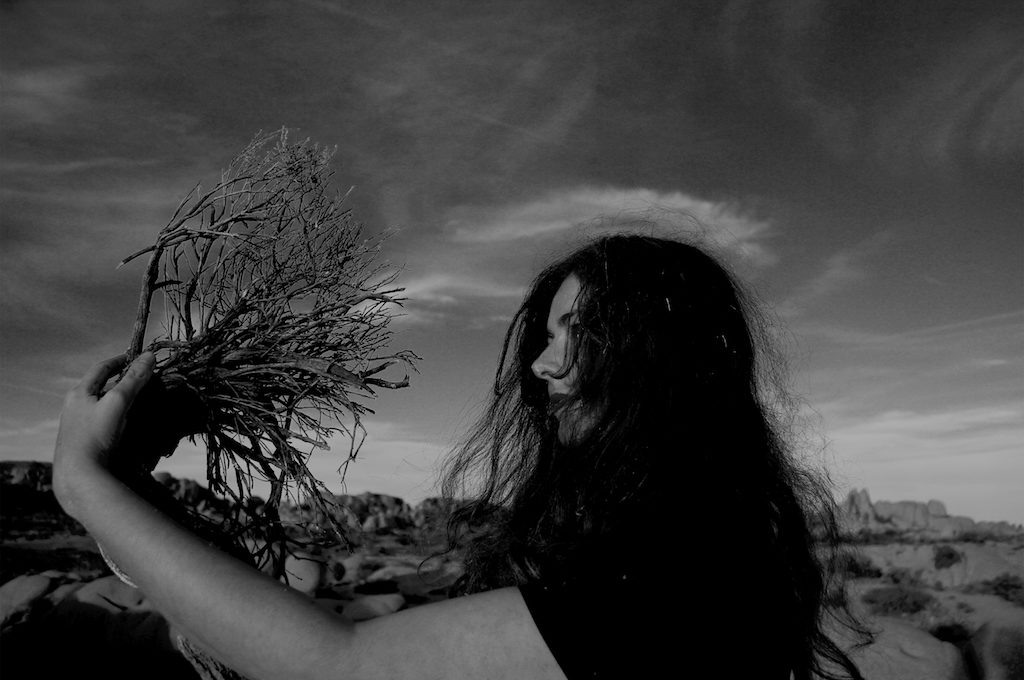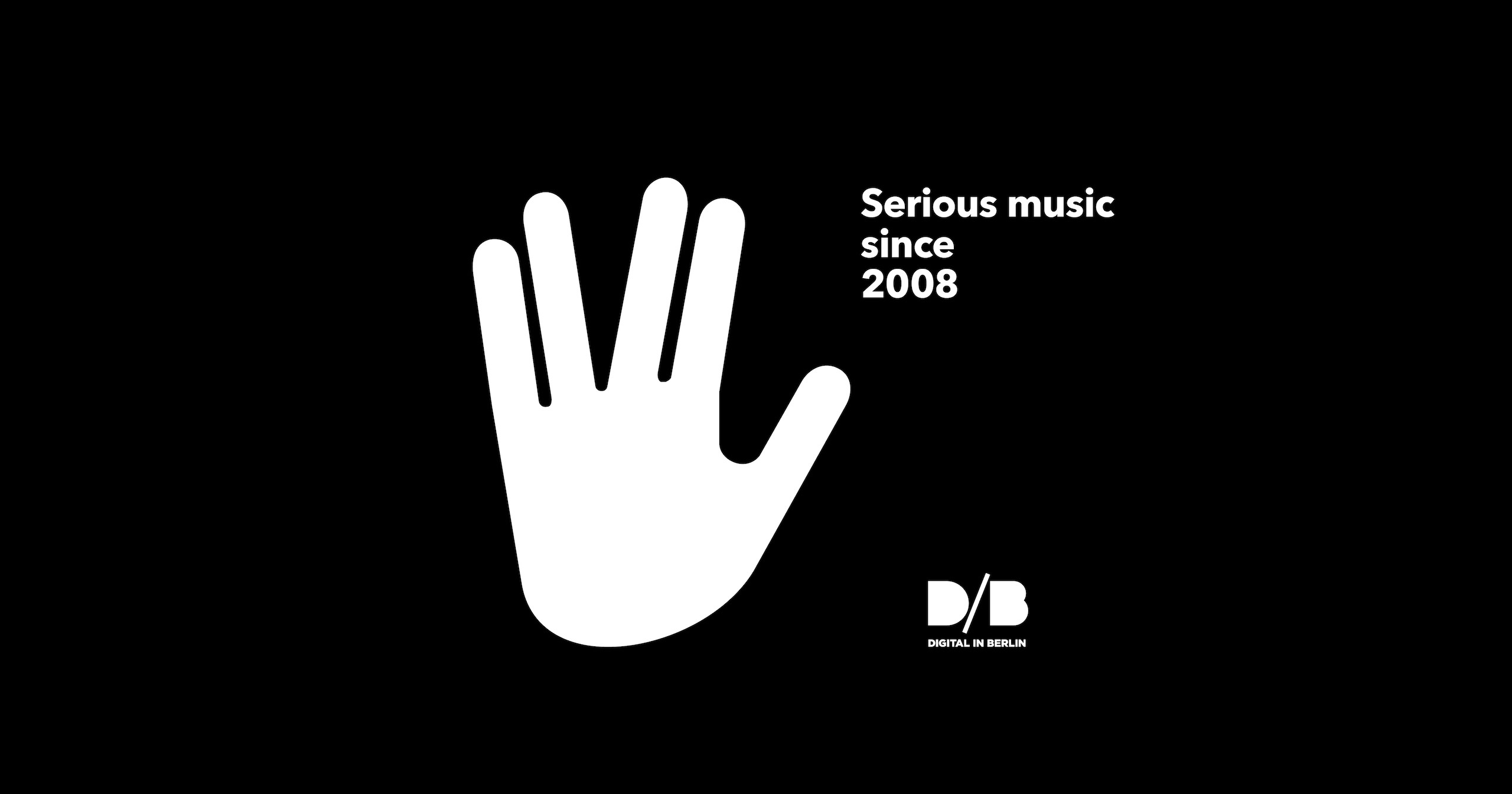Wild Anima’s releases for British cassette label Blue Tapes won praise from the likes of NTS Radio and The Quietus, who compared her stark, voice-only Songs From Above release (Blue Twenty-Two: Wild Anima) to Carlo Gesualdo, William Basinski, Keiji Haino’s Nijiumu, The KLF’s Chill Out, Pandit Pran Nath and even Enya.
“Like Enya on a Julianna Barwick trip, Wild Anima fills the air with magic, and soft light seems to permeate the woods even in the middle of the night.” – Cassette Gods
FACTS:
1: The heart’s electro-magnetic field is 5000 times bigger than the one
emitted by the brain.
2: Water holds memory.
3: In the womb the first organ that develops after the heart is the tongue.
QUESTIONS:
1. What is the biggest inspiration for your music?
I think my deepest and biggest inspiration is “the mystery”, I have
always been fascinated by things that are bigger than us, or things that
we all feel but that can’t necessarily be seen or explained. So in a way
nature is one of my biggest inspirations for my music, nature in all it’s
meanings, the world that surrounds us, plants and the elements, the
night sky, the deep oceans that are mostly unknown to us but also nature
in our psyche, human nature, the nature of our mind and existence.
2. How and when did you get into making music?
I first properly started creating my own music and playing with sound when
I was around 20 years old. At the time I had left my entire life in
Paris and moved to Bristol, UK, on a spontaneous decision. I had those
two cassette dictaphones that I was taking everywhere I went. One with a
regular size cassette and another mini cassette type. This was my first
way of recording sounds, I loved working with tape and its magnetic
quality, somehow I felt that I wasn’t just recording sounds but also
feelings, moods from the places I was being in contact with. It took me
years though to start recording my voice and building proper tracks
using software and synthesizers. Looking back, I like that this was a
slow paced process because it allowed me to explore different styles and
ways to come up with my own sound.
3. What are 5 of your favourite albums of all time?
Plaid – Double Figure
Autechre – Tri Repetae
Samaris – Silkidrangar
Björk – Vespertine
Boards of Canada – In a Beautiful Place Out in the Country
4. What do you associate with Berlin?
Berlin is a sort of sanctuary for me, it’s a city that has brought kind
of a safe space to my being, in a way. I’ve been going to Berlin since I
was a teenager and later moved here just before I turned 30. I think of
Berlin as a person, a best friend that I like to hang out with although
there are times when it feels more tricky, like in every human
relationship. It has also been a heart opener for me in various ways.
5. What’s your favourite place in your town?
My favourite place is this abandoned railway that is now converted into
a park, it must be one of the wildest places in Berlin. I love how
nature has taken the lead on the landscape that was sculpted by the old
railway, there is like this dialogue happening in between plants and the
manmade architecture.
6. If there was no music in the world, what would you do instead?
I often say that if I didn’t do music I would probably be a doctor, I
also like the idea of being an oracle, like the Pythia in ancient Greece
but in a modern version.
7. What was the last record/music you bought?
Zion Flex – ‘Pieces’
A’Bear – ‘Ear Of The Heart’
8. Who would you most like to collaborate with?
I would love to work with whales or wolves. I wonder how it would be to
explore the heart’s magnetic field communicating with animals.
9. What was your best gig (as performer or spectator)?
I once played this gig in Vienna in an underground gallery space where I
performed after this contemporary theatre piece that included an art
performance by Croatian artist Marko Markovitch. In the piece he was
representing the wilderness in a confrontational way. It was the
craziest punk thing I’d ever seen. He started off pulling his trousers
down and taking selfies of his bum hole and continued into a series of
actions involving puking and burning himself, testing the limits with the
audience and playing with the feeling of fear. It was totally unplanned
from the organisers of the event but my act came after the theatre piece
as a perfect match in a contrasted way. In my own way I was also
representing the wilderness with a totally different approach, a lot of
audience members had already left, probably a bit shaken or disturbed by
the previous performance, but for the ones who stayed we had such an
amazing experience. This is the kind of thing that is tricky to describe
because it is all about the feeling we get as a collective in the
present moment. There was a really intimate atmosphere during
that show I played, this is actually one of the tings I am talking about
in my album ‘Alkhemy’. This healing transmutation that can happen between
performer and audience. When I am able to tune into this “heartfield” I
feel able to touch people in a different way than just sound, a
different form of communication happens. So overall the combination of
the first act which was tapping into confronting fear and facing the
shadow self with my performance tapping into a more vulnerable form of
intimacy and inner softness created an unpredictable piece for the event
as a whole, which I was able to experience as both audience member and
performer.
10. How important is technology to your creative process?
I like to think of technology as an instrument to create things that I
wouldn’t come up with on my own. I see it as a tool that I have an
interaction with. A medium where spirit can find a voice through a
process of trial and error. I think my favourite thing about it isn’t
that it can serve the exact vision of what I want to express but rather
show me “accidents” of things I wouldn’t have thought possible. I really
like that aspect of randomness with creating beats and using vocal live
looping. The texture that can emerge sometimes really surprises me.
There is a special magic that happens where I lose myself in the looper
or in the sound design of field recordings and beat making. So as a
whole I would say that technology can have an important role in my
creative process as a sound artist but I can also find freedom without
using technology at all. The idea of having just pen and paper can also
be very liberating.
11. Do you have siblings and how do they feel about your career/art?
’m not sure about it, I think they see me as a weirdo but that is
probably a good thing!
Wild Anima’s latest release is available on Bandcamp.
Photo © Alisha Erao

